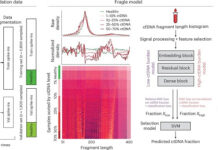A pioneering collaboration between the National Centre for Healthy Ageing (NCHA)—a partnership between Monash University and Peninsula Health—has developed a novel artificial intelligence (AI) approach to improve dementia diagnosis in hospitals. By integrating AI with traditional diagnostic methods, the team has achieved significantly higher accuracy in identifying dementia using routine hospital data.
Global and National Dementia Burden Growing Rapidly
Dementia currently affects around 50 million people worldwide—a number expected to triple by 2050, according to the World Alzheimer Report. In Australia, the challenge is compounded by a lack of accurate methods for identifying and counting people living with dementia. This gap hinders the country’s ability to plan and deliver appropriate care and support services.
Hospitals Offer a Crucial Opportunity for Detection
Routine hospitalisations and regular contact with healthcare services offer critical moments to detect undiagnosed dementia. However, the current method—where trained medical coders manually extract relevant information from extensive medical records—can lead to underreporting due to the sheer volume and complexity of unstructured data.
AI and Natural Language Processing Improve Accuracy
To overcome this barrier, researchers from NCHA and Peninsula Health applied a combination of traditional data analysis and AI, specifically Natural Language Processing (NLP), to electronic health records (EHRs). The study involved over 1,000 individuals aged 60 and above from the Frankston-Mornington Peninsula region. Their dual-stream algorithm showed high accuracy in determining whether a person had dementia.
Peer-Reviewed Study Confirms Promising Results
The research findings were published in the journal Alzheimer’s & Dementia. They are detailed in a paper titled ‘Dual-Stream Algorithms for Dementia Detection: Harnessing Structured and Unstructured Electronic Health Record Data’. The study compared health records of individuals with specialist-confirmed dementia diagnoses against those without dementia. The use of NLP to analyse free-text data within EHRs markedly improved the detection of dementia. This reinforces the value of combining structured and unstructured data.
Enabling Early Intervention and Better Care
Lead author Dr Taya Collyer explained that the Healthy Ageing Data Platform played a key role. It efficiently curated the high-quality data used to train the AI models. “Special software allowed us to process large volumes of free-text clinical notes, making it possible to apply NLP and extract meaningful patterns,” she said.
Professor Velandai Srikanth, NCHA Director and project lead, emphasized the long-term impact of the new method. “This AI-based approach could not only improve national dementia prevalence estimates, but also identify patients who may urgently need care but currently go unnoticed,” he said.
A Step Forward in Dementia Care
“Many individuals are missing out on essential care because we simply aren’t identifying them effectively,” Professor Srikanth added. “By using this new approach, we can intervene earlier and ensure better outcomes for people living with dementia.”
Pharmabiz.com reports that the innovative solution marks a major step forward in how healthcare systems use AI to support ageing populations. It brings precision, efficiency, and hope to dementia diagnosis and care.
























